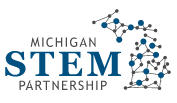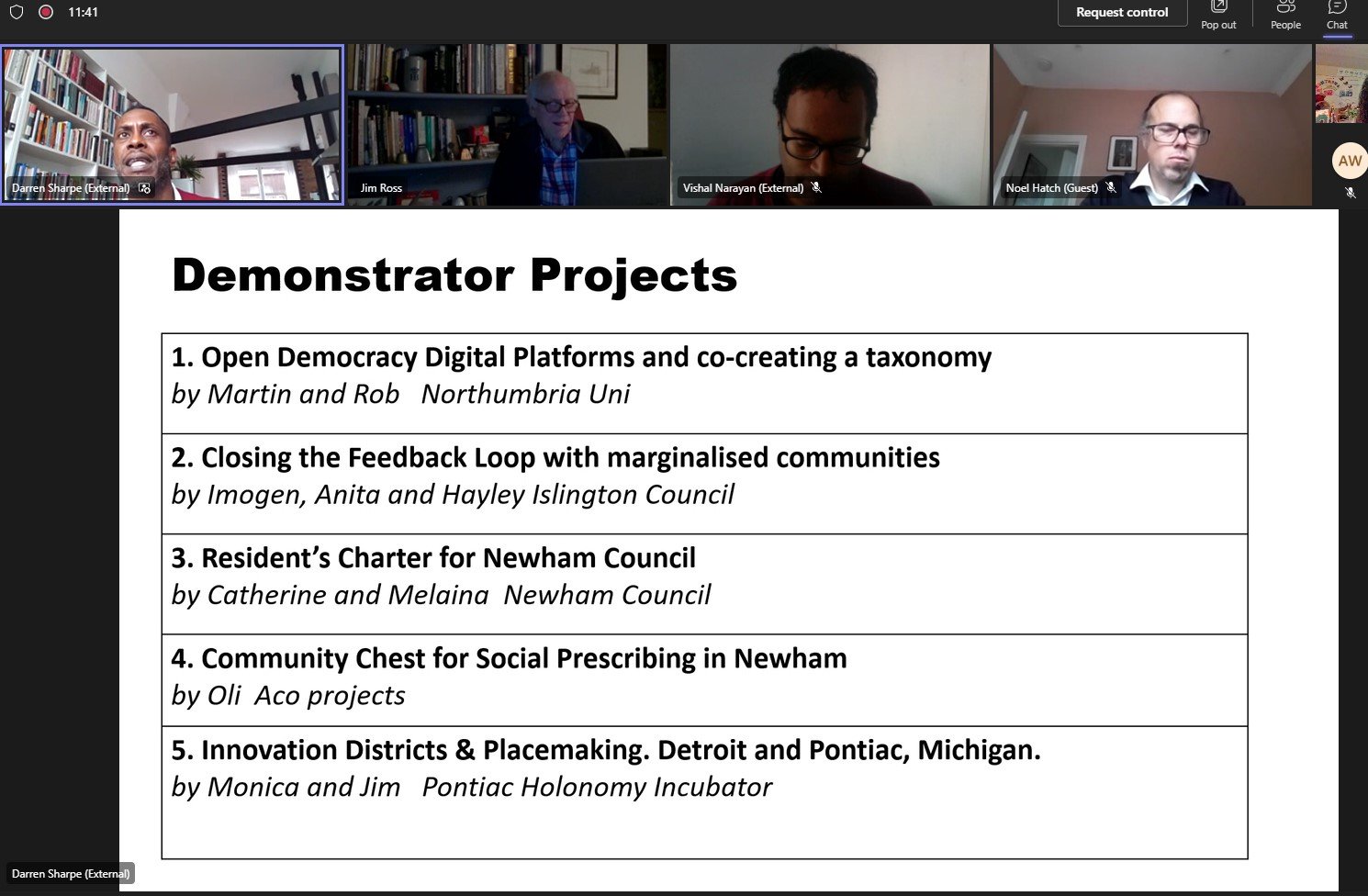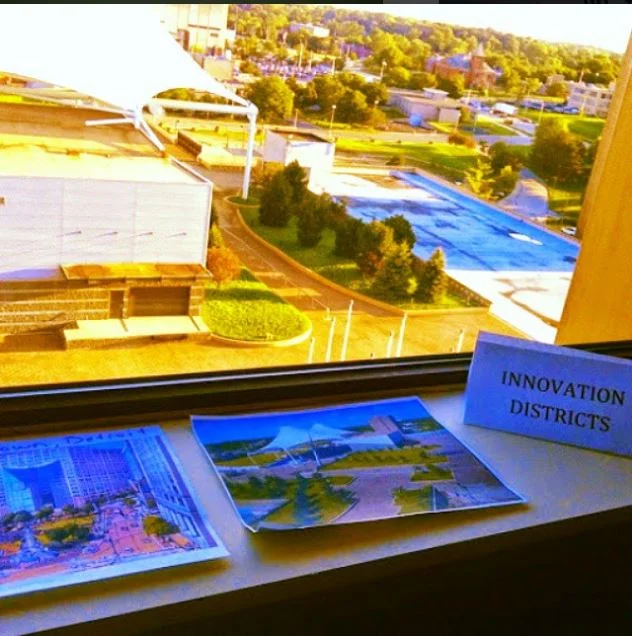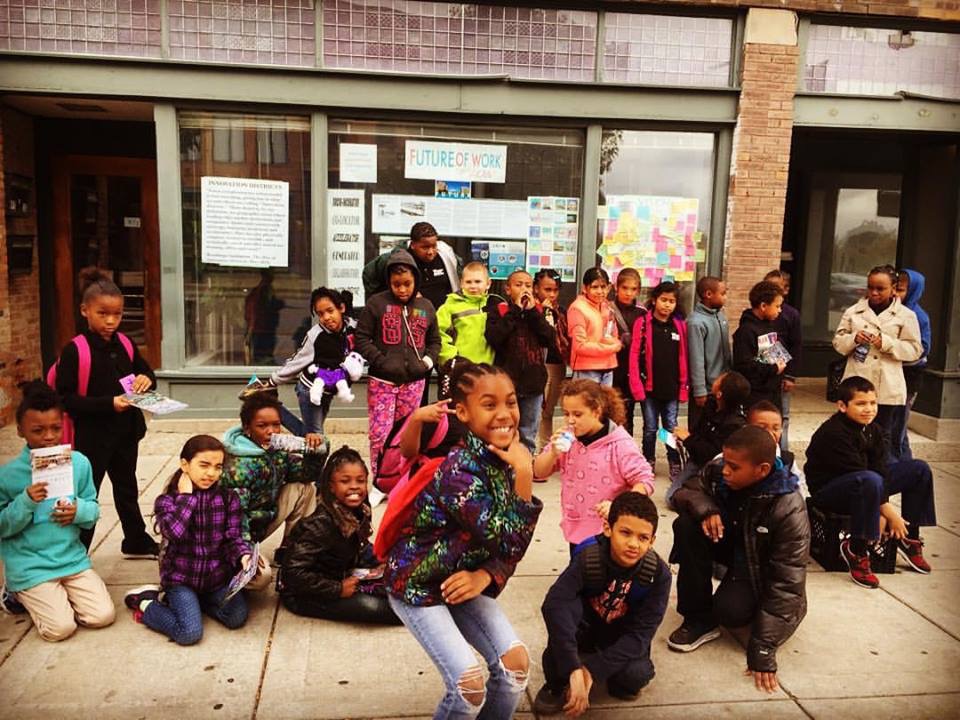“I always held a deep interest in Astronomy, but what I discovered while at the Observatory was my passion for and love of critical and out-of-the box strategic thinking and leadership. And that the greater the idea, project and best intentions, the more of a thorough and adaptable execution plan you need that can be broken up into bite sized pieces that people can run with and take ownership of. For example during the “Evolving New Ideas” event* while volunteers may have wanted to setup technical infrastructure or interact with animals, the Zoo may have been seeking exposure and funding, while the school district had to show tangible value and sustainability and from the Observatory’s perspective, we were interested in the scalability of this model nationwide. You have to account for all of that plus possible conflicts of interest and the unexpected. ”
*Evolving New Ideas was the name of the student-driven, interactive, LIVE technology showcase for the Michigan Association of Teachers Association in 1997 and for the National Association of Teachers Association in 1998 at the Renaissance Ballroom in Detroit, MI.
Jim Ross, Co-Founder/Designer PHINCO: Serial Entrepreneur and Digital Design Studio Innovator & Educator
Before turning to Education, Jim worked directly with the Big Three & International Auto Industry leadership during the transition from print to digital innovation in the graphic and industrial design fields. He founded RGB Studio, receiving a $2M in one of the first venture capital investments in digital technology from the Michigan Economic Development Corporation (MEDC), culminating in the International Standards Organization (ISO) vote to adopt the RGB colorspace model for the web during the Laser & Graphics Conference 1987; and then founded Detroit Digital Design Studios…where in 1991 -92 via a collaboration with the Industrial Design Society of America and exiled former Industrial Designers such as Syd Mead, they created the "Design Studio of the Future" demonstration/showcase during the annual "Eyes on Design" event hosted at the Edsel and Elanor Ford House.
Once it was clear the industry was doubling down on “Planned Obsolescence” Jim turned to Education after a touring a group of “Curious” kids at his studio in the McMath Hulbert Solar Observatory in Lake Angelus, Michigan and he became the non-profit Director of this institution from 1993-2006 shepherding the restoration of the telescopes and multiple education grants and innovations via the Discovery Program. A signature Discovery Program pilot model was originally funded for $5M by the Mott Foundation on behalf of the Pontiac School District (Project Excel), and then became the federally funded, and still running “21st Century Community Learning Centers” grant. The original “social design” intention of this model was demonstrated at the General Motors Renaissance Center Ballroom on Detroit’s riverfront during the 2001 & 2002 Michigan Science Teachers Association (MSTA) & National Science Teachers Association (NSTA) “Evolving New Ideas” conferences, and connected student presentations from their six week, self-directed immersive learning experiences…which they reported live into the ballroom from the Butterfly & Penguin exhibits at the Detroit Zoo, the McMath Hulbert Solar Observatory, Greenfield Village and University of California, Santa Barbara. At the time $40K live trucks were installed to demonstrate this FUTURE, but the pilot model holds today and is “Cheaper, Better, Faster”. Jim’s history and understanding of Design and is applied via the simple “elegant” solution in the creative combination of elements in the PHINCO “Digital Visual Design & Systems Thinking” platform.
Now based in downtown Pontiac, MI - the Pontiac Holonomy Incubator at 4 N. Saginaw St. was formed with Co-Director Monica Williams, after committing to the Ottawa Towers/Phoenix Center development site as a central focus - while beta-testing a Digital Design Thinking process platform for connecting and developing collaborative community projects. Community and a youth centered downtown within the framework of Innovation District / Placemaking initiative that serves as a framework for understanding and developing programs that facilitate 21st Century skills development, transportation, regional connectivity, organizational learning via systems / design thinking, creativity, and the design of environments that allow us to figure out our future together.
RGB2 debuts at Laser and Graphics Conference. ISO RGB Q60 adoption.
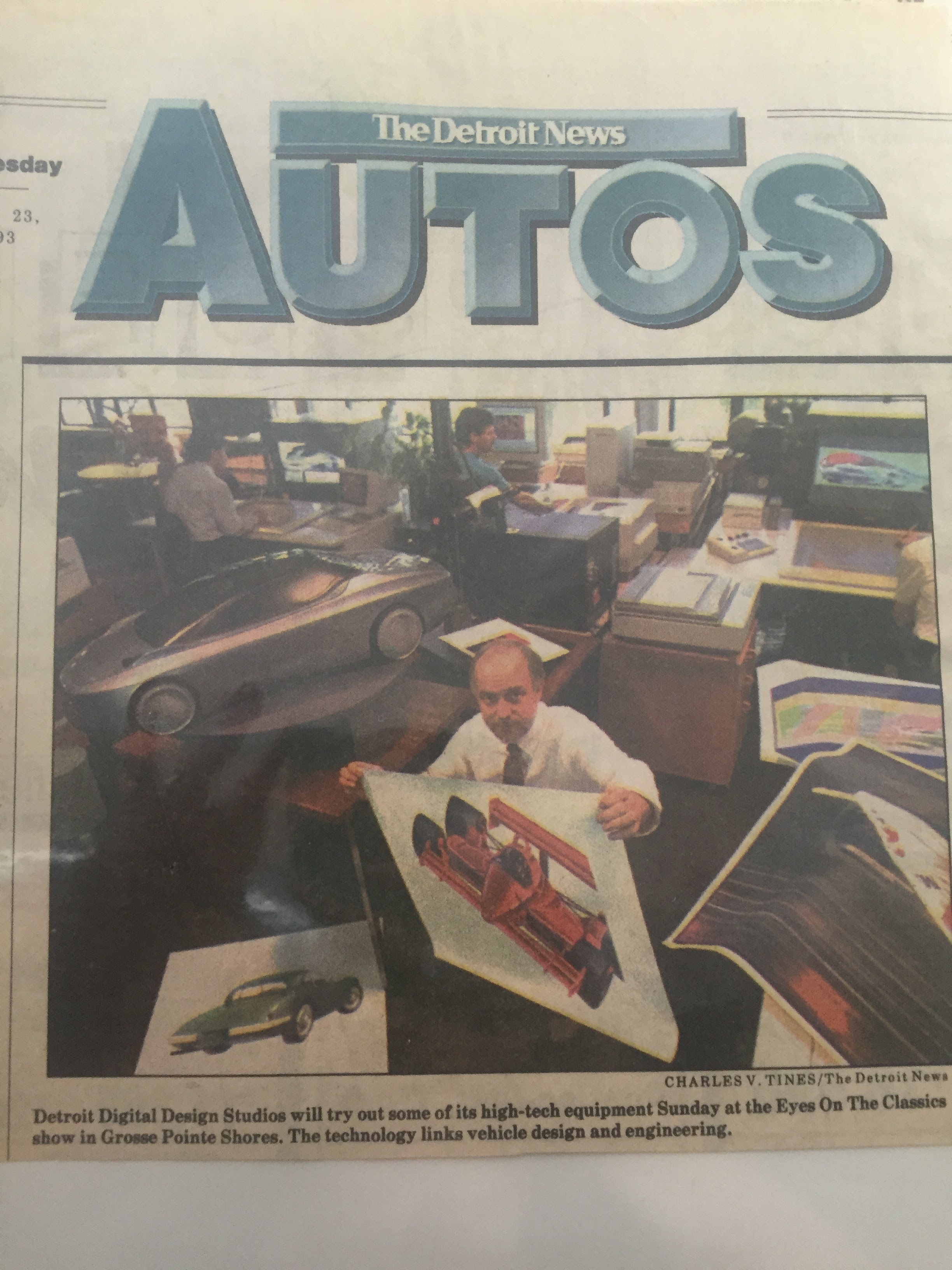
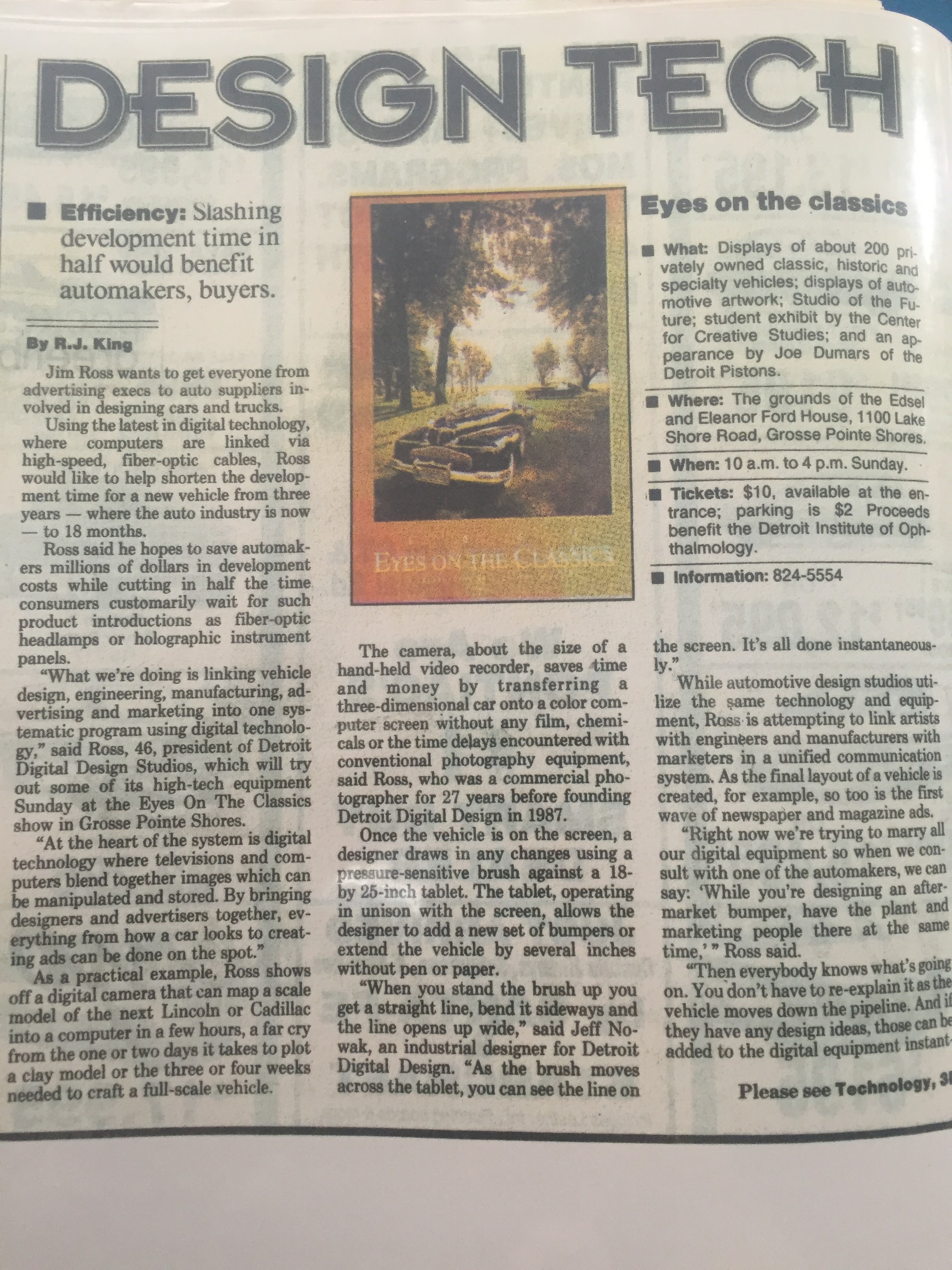
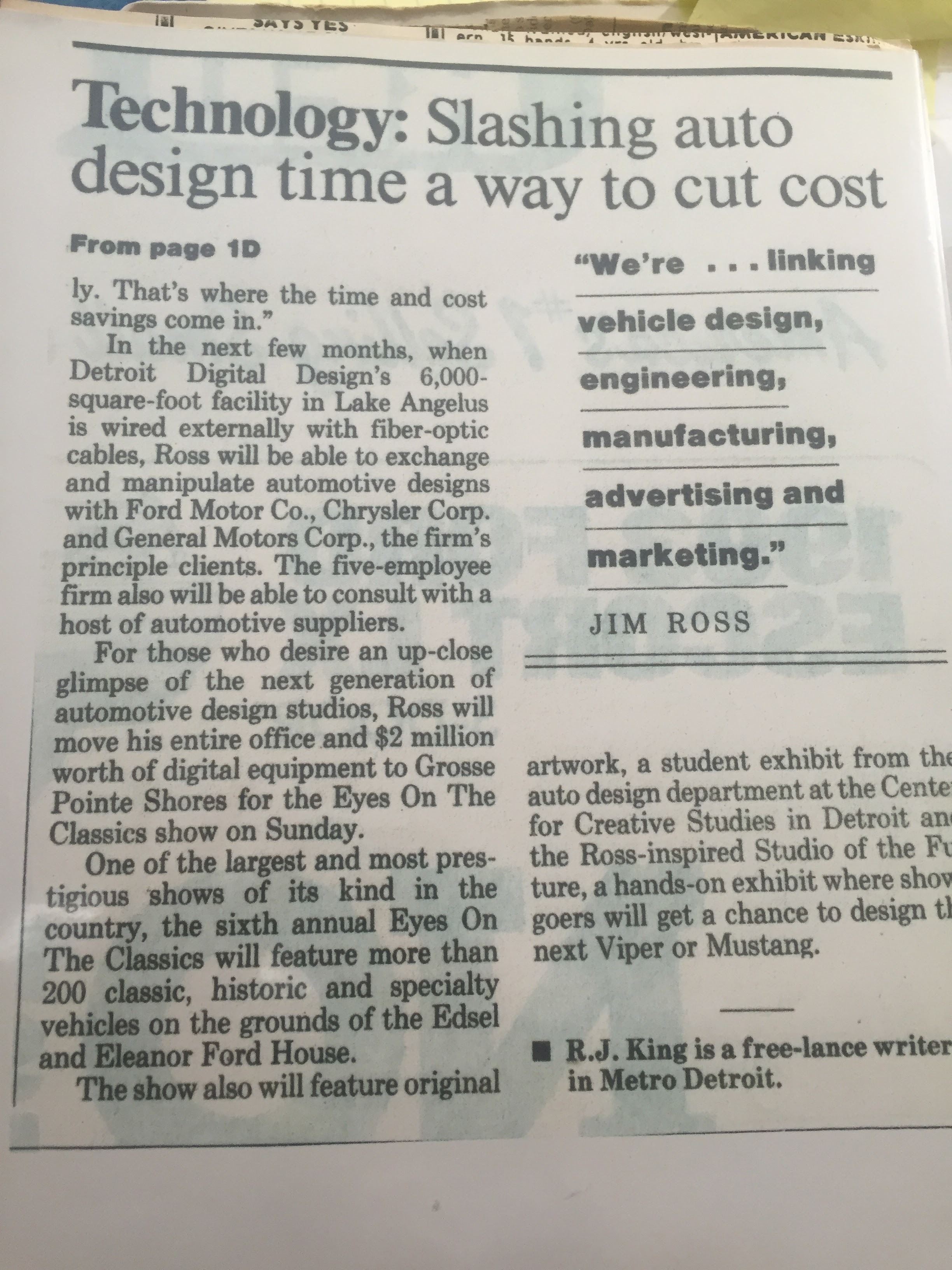
First major work Syd Mead produced using computer graphics software working with Detroit Digital Studios and the Industrial Design Society of America. Mead left Ford when design lost ground and went to Hollywood to envision sets such as for Blade Runner and Tron. He returned to Detroit to collaborate with Detroit Digital Studios for this show that highlighted design and the new capacities technology made available to creative talent.
On the Studio experience Detroit Digital created. (That is being replicated in small learning incubators in diverse places throughout Southeast Michigan).




